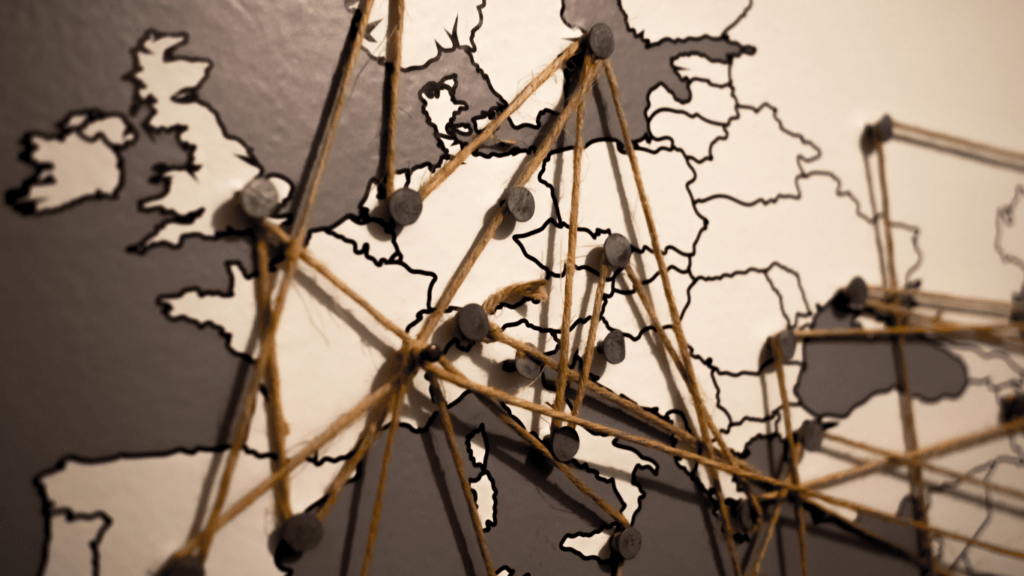Overview of Europol’s Expansion
Europol’s expansion signifies a major leap in global law enforcement collaboration. Over 3,000 authorities are now connected, enhancing joint efforts to combat crime.
What Is Europol?
Europol, short for the European Union Agency for Law Enforcement Cooperation, supports EU member states in their fight against serious international crime and terrorism. Established in 1999, Europol’s headquarters are in The Hague, Netherlands.
- Growth in Membership: Europol initially had few member states but now includes all 27 EU countries, expanding its reach and resources.
- Information Exchange: The launch of the Secure Information Exchange Network Application (SIENA) in 2009 revolutionized data sharing among law enforcement agencies.
- Operational Successes: Significant operations like Operation Trojan Shield in 2020 demonstrate Europol’s ability to coordinate large-scale international actions.
- Innovative Technologies: Europol advances in data analytics, AI, and digital forensics, ensuring they remain at the forefront of modern policing tactics.
The Impact of 3,000+ Connections

Connecting over 3,000 law enforcement authorities to Europol marks a key advancement in combating global crime.
This large-scale cooperation amplifies the ability to address transnational criminal activities efficiently.
Enhancing International Cooperation
The integration of 3,000+ authorities fosters unprecedented international cooperation. Law enforcement agencies from diverse countries now share intelligence seamlessly, improving joint operations.
Each participating nation brings unique expertise to Europol, enriching the collective knowledge base.
For example, Germany’s expertise in financial crime and Spain’s experience in counter-terrorism bolster the agency’s overall capabilities.
Enhanced cooperation also means quicker response times and coordinated actions, leading to more successful operations against organized crime networks.
Improving Data Exchange and Security
Enhanced data exchange and security emerge as pivotal advantages of Europol’s expanded connections.
The Secure Information Exchange Network Application (SIENA) facilitates real-time data sharing among these law enforcement agencies. Such exchange minimizes data silos, reducing the gaps in intelligence.
For instance, when authorities in France uncover a drug trafficking route, they can instantly share this with counterparts in Italy, enabling swift action.
Additionally, the integration of advanced security protocols ensures that sensitive information remains protected from breaches. Enhanced data security strengthens trust among participating authorities, encouraging more open and frequent information exchange.
Challenges and Controversies
Despite the significant advancements, the expansion of Europol’s network faces several challenges and controversies.
Legal and Privacy Concerns
The extensive data sharing across international borders raises legal issues, especially concerning privacy rights.
Various jurisdictions have different data protection regulations, making it complex to ensure compliance.
Additionally, the General Data Protection Regulation (GDPR) places stringent requirements on data handling within the European Union.
Balancing efficient information exchange with adherence to these legal frameworks remains a persistent challenge.
Operational Challenges
Managing interoperability among over 3,000 law enforcement authorities is daunting. Authorities use different systems and protocols, causing potential delays and miscommunications.
Moreover, the reliance on advanced technologies like AI and data analytics necessitates continual updates and training to ensure effectiveness.
Resource allocation is another operational hurdle, as agencies must share limited resources without compromising their primary missions.
The Future of Europol
Europol’s vision for the future builds on its current success and addresses emerging challenges. This forward-thinking approach ensures it remains at the forefront of global law enforcement efforts.
Technological Advancements
Europol’s investment in cutting-edge technology highlights its commitment to staying ahead of criminal activities.
Advanced data analytics and artificial intelligence (AI) tools enable to:
- more efficient crime pattern identification
- risk assessment
- operational planning
The implementation of biometric technologies improves suspect identification and tracking.
Additionally, augmenting cybercrime units with machine learning algorithms enhances the agency’s ability to counteract evolving digital threats.
Strategic Goals and Partnerships
Europol’s strategic goals focus on expanding its operational capabilities and fortifying international cooperation.
By 2030, Europol aims to improve its analytical capacities and elevate its intelligence-gathering methods to new standards.
To achieve these objectives, Europol prioritizes forming strategic partnerships with both public and private sectors.
Collaborations with tech firms, cybersecurity experts, and academic institutions enrich its resource pool and foster innovation.
Engaging with non-EU countries, Europol strengthens its global network, ensuring a robust and unified response to transnational crime.
These advancements and strategic directions illustrate Europol’s proactive stance in adapting to future challenges in law enforcement.




